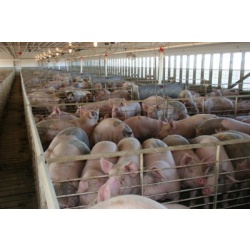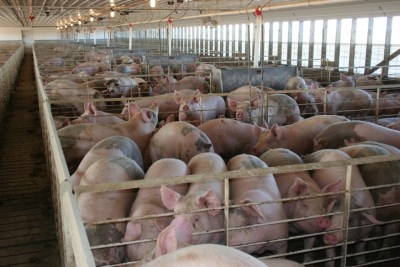
Letter to the Editor: "I object to the proposed CAFO expansion by Platinumbrook"
Posted: Sun, Sep 29, 2019 8:17 AM
(The following Letter to the Editor has been submitted by Dick Janson of Decorah):
"I object to the proposed CAFO expansion by Platinumbrook because it will double the toxic air emissions from the current CAFO site which include:
• hydrogen sulfide,
• ammonia, • the greenhouse gas methane, and
• 100+ VOC's.
If these were emitted by industry, they would be regulated. Because they occur in agriculture, they are not. These toxic air emissions should be regulated to protect both natural resources and the public health of Iowa citizens regardless of the source, whether it be agriculture or industry.
In addition swine CAFO air emissions will double the following harmful substances:
• antibiotics.
Application of this waste to the soil will also spread antibiotic-resistant organisms to the environment. The swine waste being applied to the soil also contains antibiotics excreted by the animals. These antibiotics promote the development of antibiotic-resistant organisms in the soil and the surrounding environment.
Regulatory policy regarding today's agriculture has not kept pace with the industrial-scale of operation currently in use. While human waste is required to be treated, the more polluting swine waste is not.
The expansion will provide for a total of 4,998 swine for 360 days of the year. To equalize the pollution numbers produced by the swine in this operation requires that 4,998 swine be multiplied by 5. Thus the waste produced by 24,990 humans is required to equalize the swine waste pollution numbers at the Reicks' operation:
Ossian 845
Spillville 367
Fort Atkinson 349
Decorah 8,127
West Union 2,486
Cresco 3,868
New Hampton 3,571
Waukon 3,897
TOTAL: 24,448
The communities of Calmar, Ossian, Spillville, Fort Atkinson, Decorah, West Union, Cresco, New Hampton, and Waukon are required to treat human waste. The Reicks' operation is not. This is not equal protection under the law. Neither does this protect existing natural resources or the public health."
Copyright © - decorahnewsarchive.com. All rights reserved.| Terms Of Use Statement.

Site designed and maintained by Iroc Web Design Services©.
Your Small Business Web Design Solutions.™
Site designed and maintained by Iroc Web Design Services©.
Your Small Business Web Design Solutions.™


